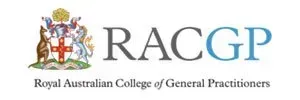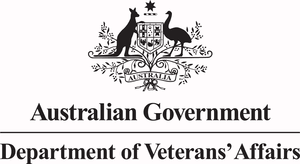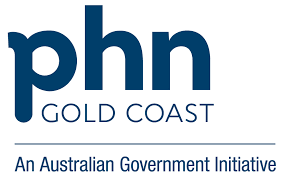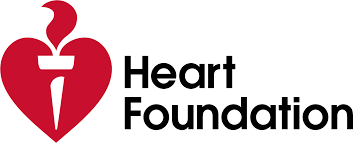Travel Medicine
What is Travel Medicine?
Travel medicine is a branch of medicine that deals with the prevention and management of health issues that may arise during international travel. It involves assessing individual health risks, providing appropriate preventive measures, such as vaccinations and medication, and diagnosing and treating illnesses that may occur during travel.
Travel medicine also involves advising on staying healthy while travelling, including recommendations for food and water precautions and information on local health hazards and emergency medical care.
Travel Medicine is an advisory medical service that covers the following:
- Travel Consultations,
- Travel Vaccinations,
- Vaccination Schedule,
- Travel Medicine Appointments.
Who is Suitable for Travel Medicine?
Anyone who plans to travel overseas, especially to developing countries or exotic locations, should consider seeking travel medicine advice. This includes backpackers, tourists, missionaries, business travellers, and people visiting friends and relatives overseas. Pregnant women, young children, the elderly, and people with chronic health conditions must seek travel medicine advice as they may be at a higher risk of developing travel-related illnesses.
Benefits of Travel Medicine
- Protection from Infectious Diseases: Travel medicine practitioners can provide vaccinations and advice on preventing infectious diseases, such as hepatitis A, typhoid, and yellow fever. These vaccines can protect you from potentially life-threatening diseases and prevent the spreading of infections to others.
- Prevention of Traveler's Diarrhoea: Traveler's diarrhoea is a common health problem that can ruin your trip. Travel medicine practitioners can advise preventing traveller's diarrhoea by avoiding certain foods and water sources or taking prophylactic medication.
- Management of Pre-Existing Medical Conditions: If you have pre-existing medical conditions, it is important to seek travel medicine advice to ensure your condition is well-managed during your trip. Travel medicine practitioners can advise on managing your medication and provide prescriptions for any medications you may need while travelling.
- Prevention of Altitude Sickness: Altitude sickness is a common health problem when travelling to high-altitude destinations. Travel medicine practitioners can provide advice on how to prevent and manage altitude sickness, including acclimatisation techniques and medication.
- Management of Jet Lag: Jet lag can be a major problem when travelling across multiple time zones. Travel medicine practitioners can provide advice on how to manage jet lag, including strategies such as adjusting your sleep schedule, staying hydrated, and avoiding caffeine and alcohol.
Travel Consultations
Travelling can be safe and enjoyable if you take the time to plan. You should make an appointment and discuss your travel plans with our doctors.
It is essential to see us 4-6 weeks before departure as the vaccinations may take several weeks to be effective, and some require multiple doses.
At your appointment, we provide a comprehensive travel medical consultation and offer you information covering the following:
- A travel health plan with prescriptions for required vaccinations
- Preventive medications for specific destinations
- Counselling to reduce your risk of illness (jet lag, DVT)
- Simple food and water precautions and high-risk activities.
- Resources in case of emergency.
Pre-Existing Medical Problems
More people want to travel in their later years. They may have pre-existing medical conditions that require special consideration, particularly concerning vaccines' safety and medical history.
Travel consultation also assists in workplace wellness, preventive, and executive healthcare programs to reduce healthcare costs.
Travel Vaccinations
Travel vaccinations are recommended or required for travel to specific destinations. They are designed to protect travellers from infectious diseases that are common in the areas they are visiting. Some examples of standard travel vaccinations include
- Yellow fever vaccine,
- Hepatitis A and B vaccines
- Typhoid vaccine
- Rabies vaccine
- Meningococcal vaccine
- Japanese Encephalitis vaccine
- Cholera vaccine
- Polio vaccine
- Measles, mumps and rubella (MMR) vaccine.
The specific vaccinations recommended or required for a particular destination will depend on factors such as the traveller's age, health status, itinerary, and the current disease situation in the destination country. Travellers should consult their doctors for personalised advice and recommendations.
Who is Suitable for Travel Vaccinations?
Travel vaccinations are recommended for a wide range of individuals, including
- Travellers visiting destinations where certain infectious diseases are expected or where the risk of exposure is higher
- Individuals with certain medical conditions, such as a weakened immune system that may make them more susceptible to certain infections.
- People travelling for business or pleasure, including tourists, backpackers, students, and long-term travellers
- People travelling to visit friends and relatives.
- Healthcare workers, aid workers, and other professionals travelling to areas with a high risk of infectious diseases
- Individuals planning to live in a country for an extended period
- People who have been previously vaccinated but have lost immunity over time
Certain vaccinations may not suit everyone, particularly those with certain medical conditions or allergies. So, it is always recommended to consult with your doctor before planning a trip to get personalised advice and recommendations.
What are the Benefits of Travel Vaccinations?
Travel vaccinations can provide various benefits, including
- Protection against disease: Travel vaccinations can protect individuals from serious and potentially life-threatening infectious diseases common in certain destinations.
- Preventing outbreaks: By getting vaccinated, travellers can help prevent the spread of infectious diseases in the communities they visit. This can help protect local populations and prevent outbreaks of disease.
- Peace of mind: Travel vaccinations can provide peace for individuals and their families, knowing they are taking steps to protect themselves and others from potential health risks while travelling.
- Cost-effective: Vaccination is a cost-effective way to prevent disease, as it is generally less expensive than treating an illness once it occurs.
- Avoiding travel restrictions and quarantine: Certain countries may require proof of vaccination as a condition for entry, and getting vaccinated can help travellers avoid quarantine or other travel restrictions.
- Ease of access to medical care: Vaccination can make it easier to access medical care in the event of an illness, as healthcare providers can quickly identify the cause of the illness and provide appropriate treatment.
- Compliance with legal requirements: Certain vaccinations are mandatory for certain countries, and not having them can result in fines or inability to enter the country.
Not all vaccinations are mandatory, and it's always good to check with your destination country's authorities for the most recent information.
What are the Types of Travel Vaccinations?
Several travel vaccinations are available depending on the destination, the traveller's itinerary, and the individual's risk factors. These include
- Routine vaccinations: These are recommended for all individuals, regardless of travel destination. Examples include the measles-mumps-rubella (MMR) vaccine, the diphtheria-tetanus-pertussis (DTP) vaccine, and the human papillomavirus (HPV) vaccine.
- Destination-specific vaccinations are recommended or required for travel to specific destinations. Examples include the yellow fever vaccine, which is required for travel to certain countries in Africa and South America, and the Japanese encephalitis vaccine, recommended for travel to certain parts of Asia.
- Risk-specific vaccinations: These vaccinations are recommended for individuals at increased risk of exposure to certain infectious diseases, such as healthcare workers or those travelling to areas with high rates of infectious diseases. Examples include the hepatitis B vaccine and the rabies vaccine.
- Pre-travel vaccinations: These vaccinations are given before travel to protect the person from potential exposure to certain infectious diseases.
- Post-travel vaccinations: These vaccinations are given after travel to protect the person from certain infectious diseases that may have been contracted during travel.
It's always recommended to consult with our doctors for personalised advice and recommendations on which vaccinations are recommended or required for a particular destination and to check with the destination country's authorities for the most recent information.
Vaccination Schedule
Vaccinations for common and preventable diseases are both a current and future investment due to the longevity of modern vaccines.
Mandatory Vaccinations
Yellow Fever vaccination is the only vaccination mandated by International Health Regulations as a requirement of entry to countries with potential Yellow Fever disease.
Special Purpose Vaccinations
Some countries mandate other vaccinations occasionally or for special purposes.
- Travel to many areas requires proper insect protection and sometimes malaria tablets.
- Travel to altitude requires advice and sometimes medication that diminishes the effects of altitude illnesses.
- Travel to Saudi Arabia mandates vaccinations for attendance at the annual Hajj pilgrimage.
A typical example is travelling to South America to visit Machu Picchu, the Amazon, Iguazu Falls and Central America.
This requires advice and prescription for the Yellow Fever vaccine, altitude illness, mosquito-spread infections such as Zika or Dengue and Malaria prevention.
For updates and travel recommendations, visit
- https://wwwnc.cdc.gov/travel/destinations/list
- www.masta.edu.au
- www.smarttraveller.gov.au
- App - Google - fit2travel
- App - Apple - vaccine record for travellers
Whilst individual requirements may vary, the standard adult schedules for typical vaccination are as follows:
| Immunise Against | Required Dosage |
|---|---|
| Hepatitis B | 0, 1, 6 months (accelerated 0, 7, 21 days, 12 months) |
| Hepatitis A&B Combination | 0, 1, 6 months (accelerated 0, 7, 21 days, 12 months) |
| Hepatitis A booster | 1, 6-36 months |
| Typhoid | Single dose, booster every 3 years |
| Polio | Single booster dose 10 yearly |
| Polio Tetanus & Diphtheria | Single booster 10 yearly |
| Rabies | 0, 7 & 28 days (accelerated 21) & 2 yearly boosters or blood test |
| Japanese Encephalitis | 0 & 28 days (accelerated 0, 7, 14 days, 1-3 months) |
| Yellow Fever | Single dose provides lifelong protection |
| Meningitis ACWY (Hajj Meningitis Vaccine) | Single dose 3-5 yearly |
Extra fees may be made for certain immunisations and vaccinations not covered by Medicare.
Travel Medicine Appointments
Most travellers will require a Standard Travel Appointment.
The doctor may need to order blood tests or review past immunisation records to recommend the most appropriate vaccination schedule.
Please bring all and any past vaccination records that you have had. Knowing exactly what vaccinations you have had can prevent unnecessary re-vaccinations.
Travel consultations vary in complexity, and so does the time required for consultation, so when making an appointment, it is best to mention that it is for Travel Health.








